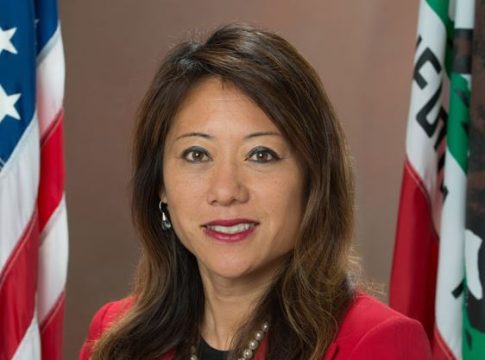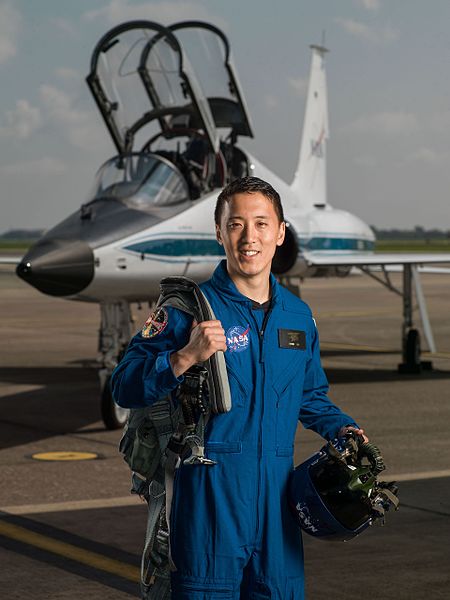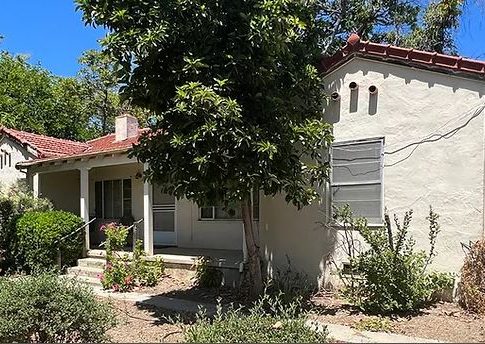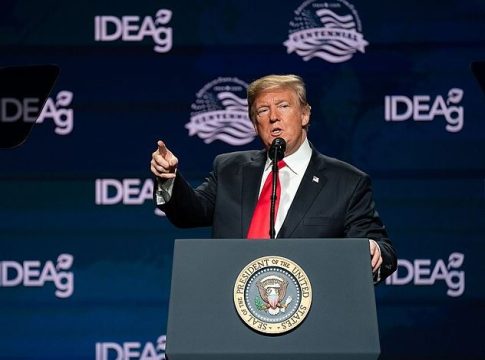
By Jana Monji, AsAmNews Contributor
Two years ago, Nightline producers Emily Taguchi and Jake Lefferman headed down to Parkland, Florida for a news event that would take them on a different journey–into the homes of heartbroken families and finally to film festivals to share a non-partisan message about the ripple effects that one act of violence can have. Taguchi and Lefferman are co-directors for the sensitive documentary, After Parkland, which, after a Feb. 12 one-day screening nationwide in theaters and special events, is now available on Hulu.
Born and raised in Tokyo, Taguchi comes from a country where mass shootings are a rarity. Her parents had prepared her to be a true global citizen by sending her to international schools. After spending sometime working at financial institutions during her undergrad years, she decided that wasn’t for her.
In what was a fortuitous “career change,” she attended UC Berkeley to get a graduate degree in journalism because she “wanted to go into story telling.”
What began as coverage of the killing of 17 people at Marjory Stoneman Douglas High School in Parkland, Florida changed into a documentary film because, Taguchi explains, “Early on we found there was a real insistence on the part of the students and families to never let their stories fade.”
LATEST STORIES

That brought “an opening to explore some deeper questions about how families find the strength and courage to get up the next day and put their foot forward and try to find new meaning in their lives.” Nightline has covered mass shootings in the past and has continued to cover them, but the Parkland community presented Taguchi and Lefferman the opportunity to investigate the “deeper questions that haunt us each time.”
Taguchi explained, “In Parkland, as the students and families continue to keep their stories in the media and in the national conversation they give us a lot of reasons to keep traveling down to Parkland.” Some of those reasons are invitations that “were clearly behind the headlines.”
Both directors have kept relationships with the families and on the film festival circuit they’ve traveled with them. After Parkland begins a few days after the shooting and never mentions the name of the shooter. Instead if focuses on the families, including them returning to school for the first time to be greeted by a massive law enforcement presence. The film follows the basketball team, coached by a man whose son was one of the fatalities. At the end, the film reminds us of other places that in 2018 were the scene of other shootings: Santa Fe, TX; Annapolis, MD; Chicago, Pittsburgh and Thousand Oaks.
One of the most meaningful conversations came at the Denver Film Festival because, Taguchi noted, “Colorado has more than its fair share of incidents stemming from gun violence and mass casualty events.” There was a Columbine survivor in the audience who had not only been at the school during that shooting, but lost a sister. “He said I wish that there was a film like this after what happened to us at Columbine because it might have actually led to a conversation. I am politically conservative; I really appreciate what you have done.” Taguchi explained that “we really specifically made the film not with an advocacy perspective” but instead aimed to shed light on some of the more human experiences.”
Outside the US, at the Hot Docs film festival in Toronto, the reaction was slightly different, she mentioned, “more toward anger and disbelief that this is still a problem.” Even the people whose communities haven’t been directly affected by mass shootings, have been moved because “a lot of people have been able to relate to sudden loss and how families and communities come together in their healing process and find resilience is a universal theme.”
Taguchi feels that “until we get out of this political silos” we won’t “be able to have a productive conversation about solutions” and the problem will persist.
After Parkland will rip your heart out, but hopefully, the nation will be able to come together, guided by this documentary and others, as the survivors of Parkland continue to ask for change. Next for Taguchi and Lefferman is a documentary on the journeys of asylum seekers from Central America.
After Parkland won Best Documentary Jury Prize at the Key West Film Festival. Running time is one hour and 32 minutes.
AsAmNews has Asian America in its heart. We’re an all-volunteer effort of dedicated staff and interns. Check out our new Instagram account. Go to our Twitter feed and Facebook page for more content. Please consider interning, joining our staff, or submitting a story.









